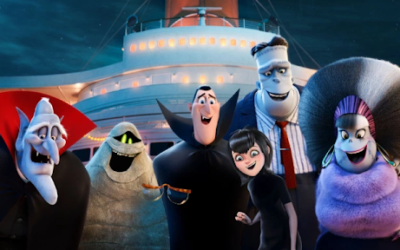If the previous weeks were a sign that the COVID-19, more commonly known as the Coronavirus, was here to stay for a while and take its toll on the world at large, then this most recent week has only made the threat of the virus all the more apparent. Multiple countries are shutting down, partially or even entirely. In the state of California, governor Gavin Newsom passed sweeping measures that restrict public activity to reduce the disease’s spread. Even Disneyland, the self-declared “happiest place on earth” that has only closed its gates on very rare occasions, has announced that it will remain closed for the remainder of the month (if not further).
To the surprise of no one, every part of the global economy has been affected to a certain degree, and this could not be more true for the film industry. With more people remaining confined to their homes, theater attendance has plummeted, and studios are looking to other means in order to make up for some of its lost revenue. In particular, Hollywood has put greater emphasis on streaming and other forms of home releasing.
It was just recently that Regal Cinemas, the second largest theater chain in the United States (owning over 500 theaters), announced that it will close all its locations until further notice starting Tuesday, March 17th. Other theater chains have also taken measures to reduce how many people are coming to their facilities; AMC, for example, has restricted the number of moviegoers per showing to fifty, a significantly smaller number than the hundreds that can usually fill a given auditorium. However, with Regal closing all of its doors, there’s no reason not to expect the other major chains to follow suit.
Theaters aren’t the only part of the film industry having to make major cancellations though. Some of this year’s most highly anticipated releases have had their opening dates pushed back so that they are not immediately affected by the Coronavirus. Much like James Bond’s “No Time to Die”, which will now be released in November as opposed to its original April date, films like “A Quiet Place: Part II” and “F9”, the newest entry in the “Fast and the Furious” series, will no longer be released as originally intended. “F9” has been pushed back over a year (now set to come out in April 2021), and no new date has been made for “A Quiet Place: Part II” to come out. Even Disney, which set box office revenue records last year, has removed its live-action “Mulan” remake, the latest Marvel Cinematic Universe entry “Black Widow”, and “The New Mutants”, a film plagued by far too many release date changes, from their March 27th and April 3rd openings.
Even the production of many feature films has come to a halt in order to keep the spread of the Coronavirus to a minimum. Recently, Warner Brothers announced that it will delay production of “The Batman”, its next cinematic interpretation of the Caped Crusader, for at least two weeks, as it has with other upcoming blockbusters like “The Matrix 4” and “Fantastic Beasts 3”. This trend continues among the other major studios, with Disney, Paramount, and Sony also shutting down the majority of its film productions until it can be safe to resume.
With theaters being all but unreliable for the time being, Hollywood has turned to the likes of video on demand and streaming to give moviegoers their fill without having them go out to the theaters. Of the major studios, Universal is the first to make most of its recent productions available for home viewing. Starting this week, Universal films like “The Hunt” and “The Invisible Man” (as well as its indie label Focus Features’ “Emma”), which had been released in theaters earlier this year, will be made available to watch on demand, dramatically decreasing the theatrical window for all these films. In addition, the upcoming animated DreamWorks film, “Trolls: World Tour”, will be released on demand the same time as it is in theaters (should there be any theaters remaining open come the film’s set release date).
While Disney has yet to make similar announcements with its own recent releases, including the animated Pixar film “Onward” (which currently tops the weekend box office with an appalling $10 million weekend gross), it has opted to bring films already set for home release to consumers even sooner than initially planned. As announced earlier this week, films like “Star Wars: The Rise of Skywalker” will be available on digital platforms later this week, and should Universal’s model be effective, one might be able to expect films like “The Call of the Wild”, made by Disney’s newly acquired 20th Century Studios, to be available for home release even quicker than anticipated.
And then there are streaming platforms like Netflix and Hulu. Although these companies are, much like the major film studios, unable to produce new content at the moment, there is still an endless selection of films and television series available to view. These platforms are constantly adding new content to be watched, and even the Coronavirus won’t stop this trend from carrying on. In the case of Netflix, films like “Silver Linings Playbook” and the most recent seasons of television series like “Black Lightning” will be made available to watch this week. Even our own “The Nightingale” is currently available to stream on several different platforms.
Will video on demand and streaming be the savior for studios in a time when theatrical productions and releases must be kept to a minimum in order to limit the spread of this disease? Unfortunately no; whatever studios earn from home releases will not be enough to recoup the billions of dollars expected to be lost due to the Coronavirus. Still, with people being confined to their homes and needing something to keep them occupied, the film industry must do whatever it can to keep its own losses as low as possible while also ensuring that consumers don’t have to risk infection in order to view their latest releases. This is a no-win scenario for just about everybody, but when dealing with such a situation, one must do whatever is possible to ensure that there is as little to lose as possible.




